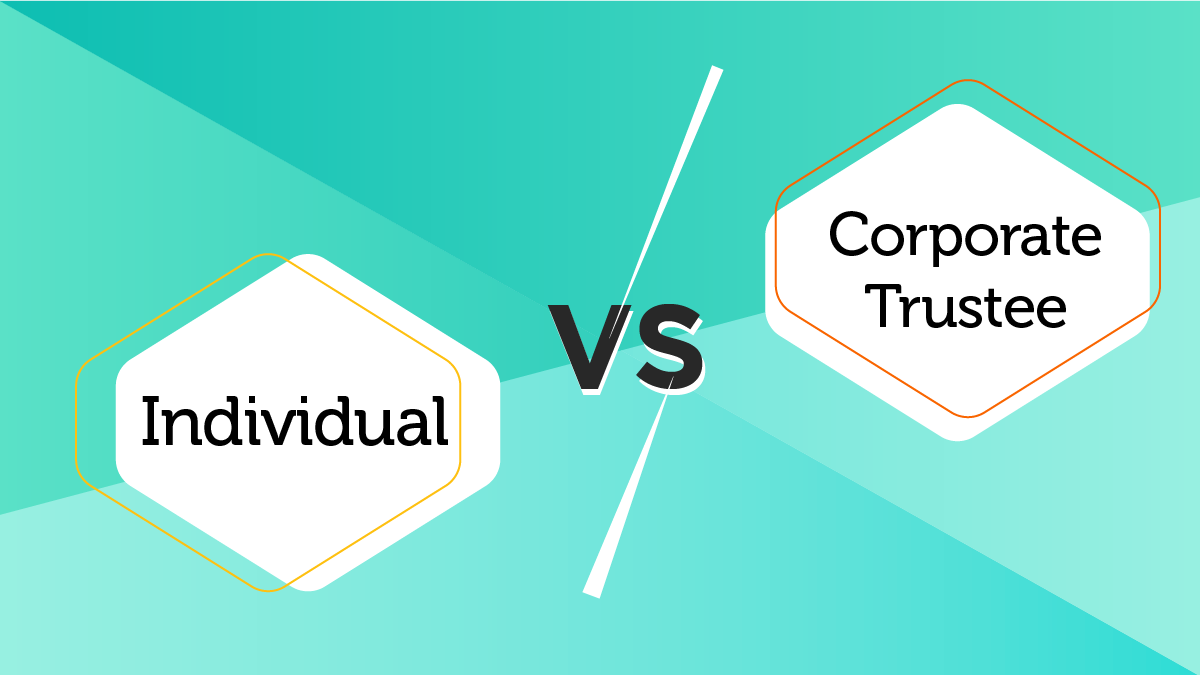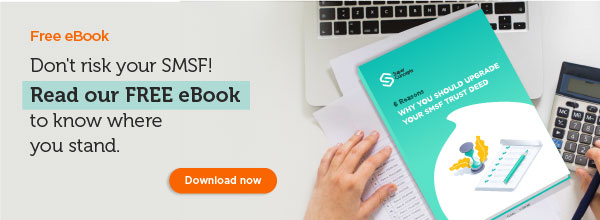
By Graeme Colley
Executive Manager, SMSF Technical & Private Wealth

When starting an SMSF, all fund members are required to be individual trustees or directors of the trustee company. So, you will need to decide which type of trustee is suitable for your fund. Here we compare the two kinds of SMSF trustees.
Individual Trustees
If an SMSF has individual trustees, there must be at least two and a maximum of six individuals responsible for all aspects of the fund's operation. To be a trustee, you must be at least 18, willing to take up the role of trustee and be of sound mind.
A fund that has just one member is required to have two individual trustees, but there is no requirement for the second trustee to be a member of the fund. If the fund has a member under 18, their parent(s) or guardian can act as trustee in their place until they reach 18.
Advantages of Individual Trustees
The main benefit of managing an SMSF with individual trustees is that the cost of fund administration and upfront establishment costs are usually less than those associated with a company trustee.
Disadvantages of Individual Trustees
The main disadvantage of having individual trustees is the fund administration when there is a change in the SMSF’s members or trustees. This involves updating the legal title on the SMSF’s investments from the previous trustees to the new ones.This does not occur where the SMSF has a corporate trustee.
There must be a clear distinction between investments and other assets owned by the SMSF and those owned by the individual. Usually, the name(s) of the trustee is recorded on fund investments and not the name of the superannuation fund, such as real estate.
A declaration of trust may be required to recognise that the investment is held in trust for the members of the SMSF. If the SMSF’s investments are recorded in the names of the individual trustees, there is also a risk that they may be confused with personal assets. This problem can be solved by having a separate corporate trustee.
If you are the only member of your SMSF, you will need to appoint another trustee who is not required to be a member. In the event of an individual trustee’s death, which will leave one individual trustee in the SMSF, another individual trustee must be appointed. You may find in this situation that a company trustee may be better as you can be the sole director of the company and the only member of the SMSF.
Under the ATO’s administrative penalties regime, the ATO can impose fines on trustees for breaches of superannuation legislation. Trustees are liable individually and jointly with the other trustees for any legal action taken against the fund. This can place the individual trustees’ personal assets at risk of a legal challenge. The SMSF cannot pay for administrative penalties as trustees are personally responsible.
Corporate Trustees
If an SMSF has a corporate trustee, all members are required to be directors of the company responsible for all aspects of the fund’s operation, just like an SMSF with individual trustees.
Advantages of a Corporate Trustee
The main advantage of a corporate trustee is its long-term benefits as a company continues even after the resignation or death of a director.
There is no need to change the legal title to the SMSF investments in these situations as they continue to be owned in the name of the corporate trustee.
A corporate trustee provides limited liability for the directors and shareholders of the company. This ensures litigation against the trustee of the SMSF is generally limited to the assets held in the name of the corporate trustee and does not extend to the directors of the company (unless they are fraudulent in their duties).
If an SMSF has a corporate trustee, ATO penalties for breaches of the superannuation law are imposed on the company and not each director of the company. With individual trustees, penalties are imposed on each trustee.
Disadvantages of a Corporate Trustee
A corporate trustee is generally established with ASIC as a special purpose company that can act only as a trustee of a regulated superannuation fund. Establishing a corporate trustee involves paying an upfront establishment cost and an annual ASIC levy. A special-purpose SMSF trustee company obtains concessions from ASIC regarding its yearly filing fees and is not required to prepare or lodge financial statements or an annual tax return.
Which trustee structure is best for you?
When considering establishing an SMSF, choosing the right type of trustee arrangement is important. As a trustee of an SMSF in either structure, you are responsible for the operations of the SMSF. It is an important role and vital to ensure your SMSF's ongoing compliance.
If cost is an issue, then individual trustees may be your preference. However, in the long term, you may find that a corporate trustee fits the role of your SMSF.
Stay connected with SuperConcepts
Subscribe now and follow us on LinkedIn, Facebook, and Twitter

Wondering whether your SMSF Trust Deed needs an update?

This eBook, written by one of Australia's most trusted SMSF experts, Graeme Colley, uncovers 6 reasons why you should update your trust deed.
To learn more about how our range of SMSF services phone us on 1300 023 170 or request a call back.
Alternatively click through to view our range of services for trustees, accountants and advisers.


